
Farafenni: The Heartbeat of Gambian Culture
Farafenni, a vibrant town located in the heart of The Gambia, is a treasure trove of cultural and historical significance. Nestled along the banks of the Gambia River, this town offers a unique glimpse into the everyday life of Gambians. Its strategic location makes it a bustling hub for trade and commerce, attracting visitors from all over the country. Known for its lively markets, Farafenni is the perfect place to immerse yourself in the local culture. The Farafenni Market is a sensory delight, with stalls brimming with colorful textiles, fresh produce, and handmade crafts. Here, you can interact with friendly vendors and perhaps practice a bit of the local Wolof language. Beyond the markets, Farafenni boasts a rich history that can be explored through its various landmarks. The town's proximity to the Gambia River allows for scenic boat rides, offering breathtaking views of the surrounding landscapes. Whether you're exploring the local cuisine at a street food stall or learning about the town's history from a knowledgeable guide, Farafenni promises an authentic Gambian experience that is both enriching and memorable.
Local tips in Farafenni
- Visit the Farafenni Market early in the morning to experience the bustling activity and get the best deals on local goods.
- Carry small denominations of the Gambian dalasi for easier transactions with local vendors.
- Take a boat ride on the Gambia River for stunning views and a chance to see local wildlife.
- Learn a few phrases in Wolof or Mandinka to interact more meaningfully with the locals.
- Try local street food, such as domoda (peanut stew) and benachin (one-pot rice dish), for an authentic taste of Gambian cuisine.
- Wear comfortable walking shoes as the town is best explored on foot.
Farafenni: The Heartbeat of Gambian Culture
Farafenni, a vibrant town located in the heart of The Gambia, is a treasure trove of cultural and historical significance. Nestled along the banks of the Gambia River, this town offers a unique glimpse into the everyday life of Gambians. Its strategic location makes it a bustling hub for trade and commerce, attracting visitors from all over the country. Known for its lively markets, Farafenni is the perfect place to immerse yourself in the local culture. The Farafenni Market is a sensory delight, with stalls brimming with colorful textiles, fresh produce, and handmade crafts. Here, you can interact with friendly vendors and perhaps practice a bit of the local Wolof language. Beyond the markets, Farafenni boasts a rich history that can be explored through its various landmarks. The town's proximity to the Gambia River allows for scenic boat rides, offering breathtaking views of the surrounding landscapes. Whether you're exploring the local cuisine at a street food stall or learning about the town's history from a knowledgeable guide, Farafenni promises an authentic Gambian experience that is both enriching and memorable.
When is the best time to go to Farafenni?
Iconic landmarks you can’t miss
Bijilo National Park
Explore the tranquil beauty of Bijilo National Park, a wildlife haven in Serrekunda, rich in biodiversity and natural wonders.
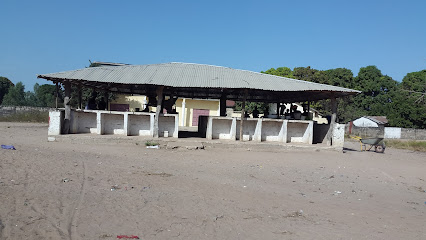
Arch 22
Discover the rich history of Gambia at Arch 22, an iconic landmark offering stunning views and cultural insights in the heart of Banjul.
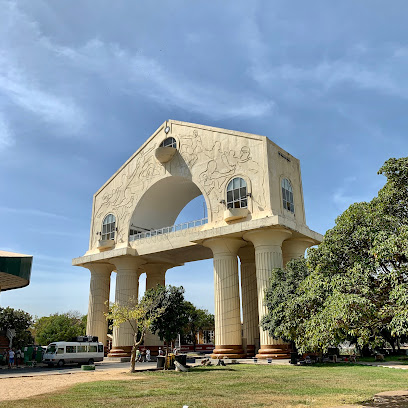
Stone Circles of Gambia
Unearth the ancient secrets of the Stone Circles of Gambia, a captivating archaeological site that showcases the rich heritage of West Africa.
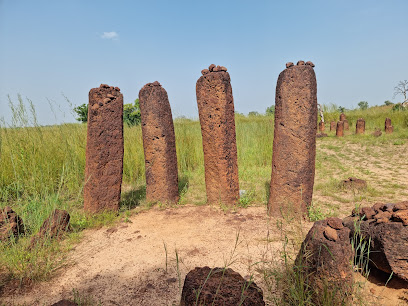
Farafenni Round About
Explore the vibrant culture and history at Farafenni Round About, a key landmark along the Trans-Gambia Highway.
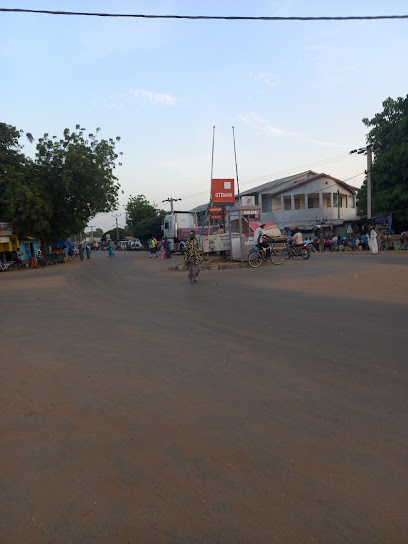
Fort Bullen
Explore Fort Bullen, a UNESCO World Heritage site in Barra, where history meets stunning ocean views and rich cultural heritage.
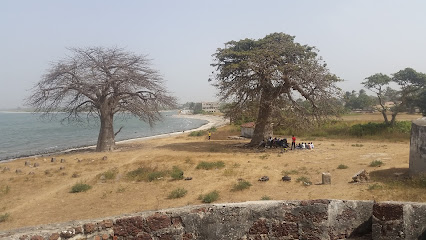
Farafenni market
Discover the heart of Gambian culture at Farafenni Market, a vibrant marketplace filled with local produce, crafts, and delicious street food.
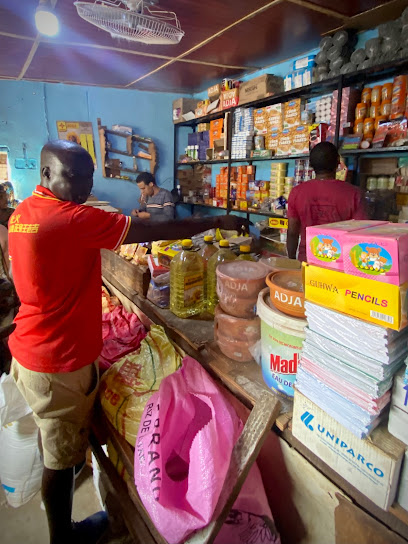
Farafenni Mosque
Explore the serene ambiance and architectural beauty of Farafenni Mosque, a cultural gem in The Gambia that reflects local traditions and community spirit.
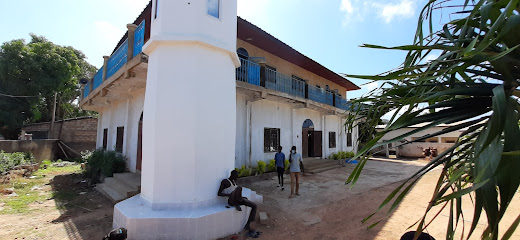
Portugiesische Kapelle von Albreda
Explore the historical allure of the Portugiesische Kapelle von Albreda, where culture, history, and architectural beauty intertwine.
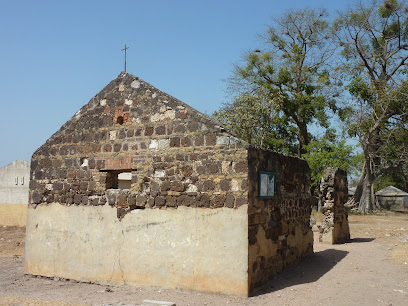
Jagne Kunda
Experience the vibrant culture and community spirit at Jagne Kunda, a unique housing complex in Farafenni, Gambia.

Unmissable attractions to see
Bakau craft market
Discover the spirit of Gambian culture at Bakau Craft Market, where vibrant arts and crafts meet local tradition.
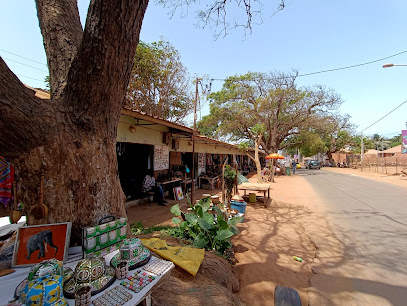
The Gambian Reptiles Farm
Explore The Gambian Reptiles Farm for an unforgettable journey into the fascinating world of reptiles, perfect for families and wildlife enthusiasts alike.
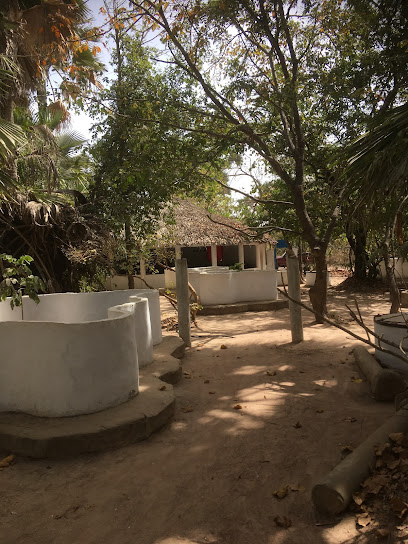
Abuko Nature Reserve
Explore the lush landscapes and diverse wildlife of Abuko Nature Reserve, a perfect retreat for nature lovers in The Gambia.
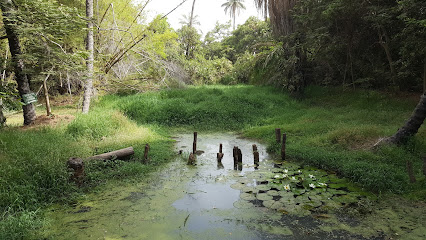
Farafenni Round About
Experience the vibrant culture and rich history at Farafenni Round About, a key landmark on the Trans-Gambia Highway.
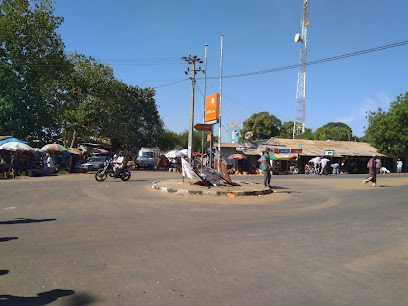
Njiekunda Agrifarming
Discover the serene beauty of Njiekunda Agrifarming, a sustainable haven showcasing vibrant plants and innovative farming techniques in the heart of Njau.
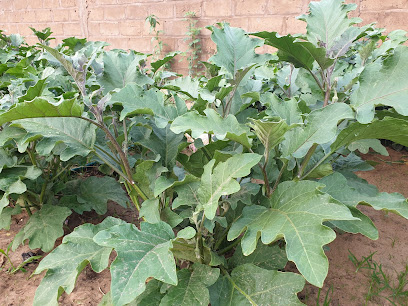
Farola 1 ASPERPOL
Explore the lush landscapes and tranquil atmosphere of Farola 1 ASPERPOL Park in Sukuta – a serene retreat for nature lovers and families alike.

Kumadi Forest Park
Discover the serene beauty of Kumadi Forest Park in Memmeh, where nature's tranquility meets vibrant wildlife in a stunning outdoor retreat.

Chammunding
Experience the serene beauty of Chammunding Garden in Hamdalai Chebo, a hidden gem that showcases the tranquility of nature in The Gambia.

Katilenge Forest Park
Explore the lush landscapes and diverse wildlife of Katilenge Forest Park, a serene escape in Bulok, perfect for nature lovers and adventurers.

Mamadou & Ismailia Gardens
Discover the tranquil beauty of Mamadou & Ismailia Gardens in Toro MBaien, a serene oasis perfect for relaxation and nature appreciation.

Dobo Forest Park
Discover the natural beauty and tranquility of Dobo Forest Park in Nduren, Gambia - a perfect getaway for nature lovers and adventurers alike.

Carrol’s Wharf
Explore the serene beauty of Carrol’s Wharf in Charmen, a tranquil park perfect for relaxation, picnics, and stunning nature views.
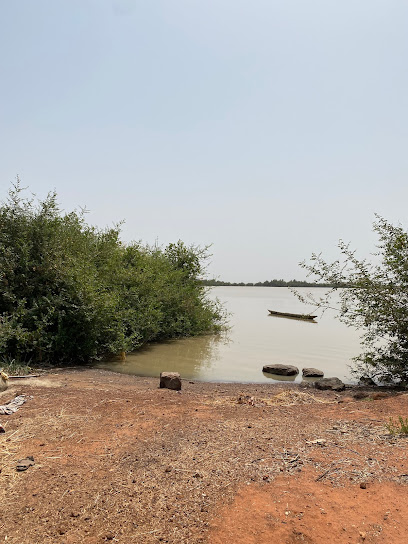
Banni Farms
Explore the tranquil beauty of Banni Farms - a stunning garden experience that soothes the soul and delights the senses.

Pirang birds watch
Experience the breathtaking beauty of Pirang, a haven for birdwatchers and nature enthusiasts in the heart of The Gambia.
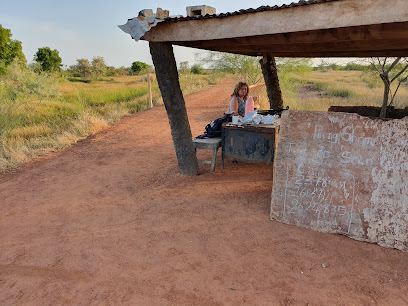
Essential places to dine
John Raymond'S Beach Bar And Restaurant
Discover culinary delights at John Raymond's Beach Bar and Restaurant in Serrekunda - where local flavors meet breathtaking ocean views.
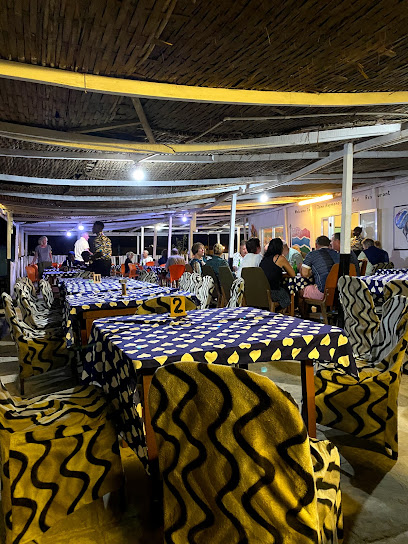
Ngala Lodge
Discover culinary excellence and rejuvenating wellness at Ngala Lodge, Bakau's premier fine dining restaurant and health spa.

Raamdaan Restaurant and Catering Services
Savor traditional Gambian dishes at Raamdaan Restaurant - a culinary journey through local flavors awaits you!
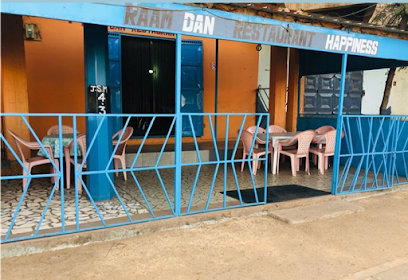
Chicken rek
Experience authentic local cuisine at Chicken Rek in Bureng, where every dish celebrates the flavors of traditional cooking.
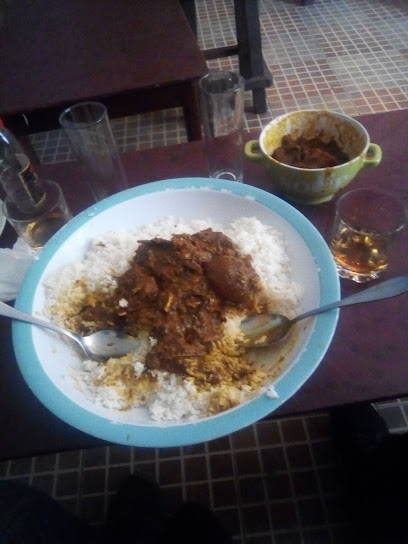
Nema fast food restaurant
Discover authentic Gambian fast food at Nema Restaurant in Soma – where every bite tells a story.
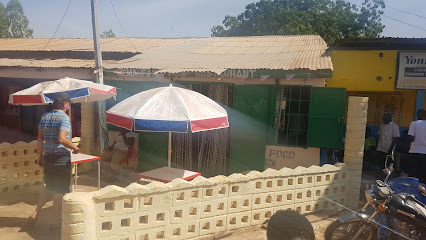
Babou's Food Paradise
Discover authentic Gambian flavors at Babou's Food Paradise along the Trans-Gambia Highway—where every meal is a celebration of taste.
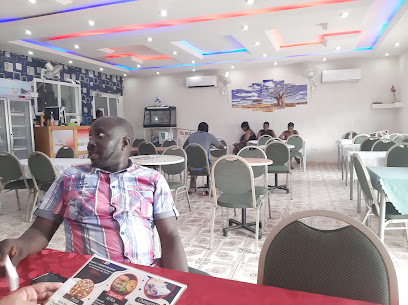
Kaira Restaurant
Experience authentic Gambian cuisine at Kaira Restaurant in Farafenni – where every dish tells a story.
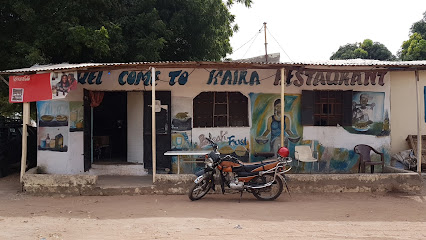
Afra GNPC
Experience the authentic flavors of Soma at Afra GNPC, where succulent grilled meats meet vibrant local culture.
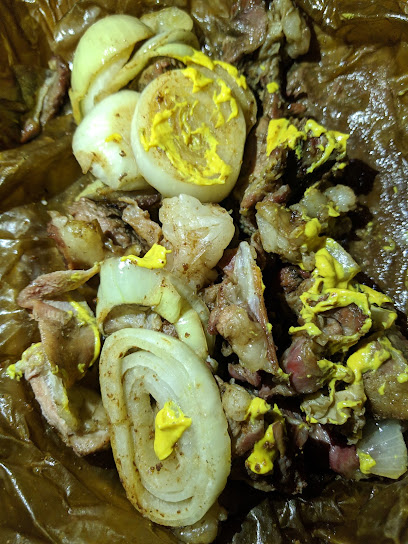
SUNU YAI FAST FOOD AND TAKE AWAY
Experience authentic Gambian flavors at Sunu Yai Fast Food and Take Away in Farafenni - where every meal tells a story.
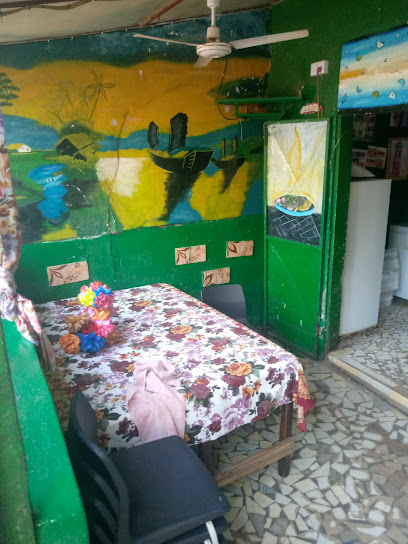
Domoridima Restaurant
Discover the vibrant flavors of fast food at Domoridima Restaurant in Soma, where quick bites meet delightful tastes.
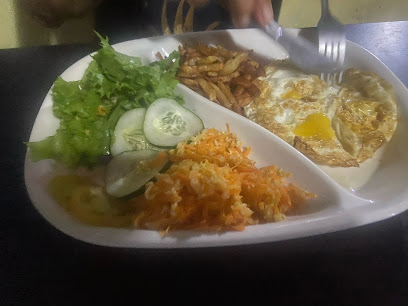
Fanta's Restaurant
Discover the rich flavors of The Gambia at Fanta's Restaurant in Kerewan – where every meal is a delightful adventure.
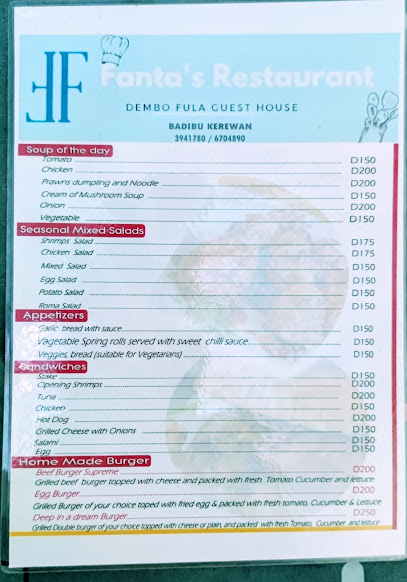
Bantaba Restaurant
Discover Bantaba Restaurant: A vibrant fast food destination in Soma offering delectable Gambian dishes and international flavors.
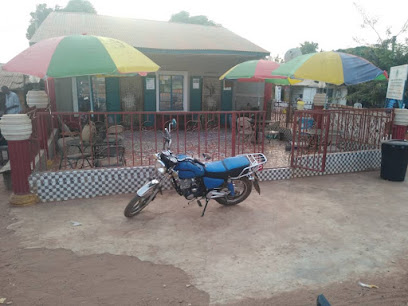
Bambo Bar
Discover authentic Gambian flavors at Bambo Bar in Tendaba - where great food meets vibrant culture.
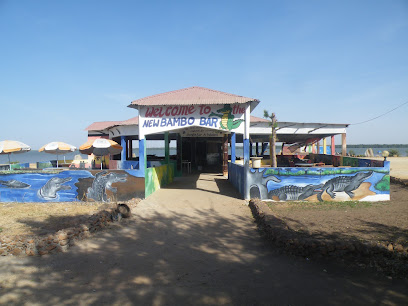
Poco Loco Beach Bar & Restaurant
Experience coastal dining at its finest at Poco Loco Beach Bar & Restaurant in Bureng, where local flavors meet stunning ocean views.
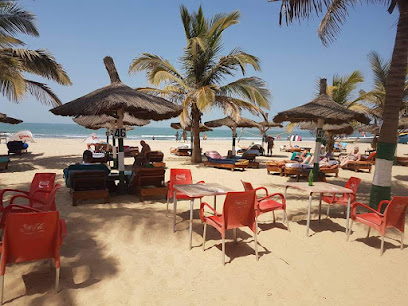
Abdoulie
Discover delicious American cuisine at Abdoulie in Bureng, where traditional flavors meet local hospitality for an unforgettable dining experience.

Markets, malls and hidden boutiques
Halabaid Trading Enterprises paradise supermarket
Explore Halabaid Trading Enterprises in Farafenni for a local shopping experience offering a rich variety of groceries and household essentials.
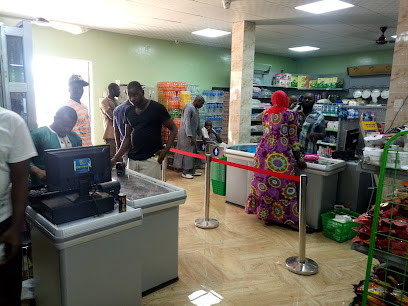
Farafenni Internet & Shopping Center
Experience the essence of Farafenni at the Internet & Shopping Center—your hub for connectivity and local shopping in The Gambia.
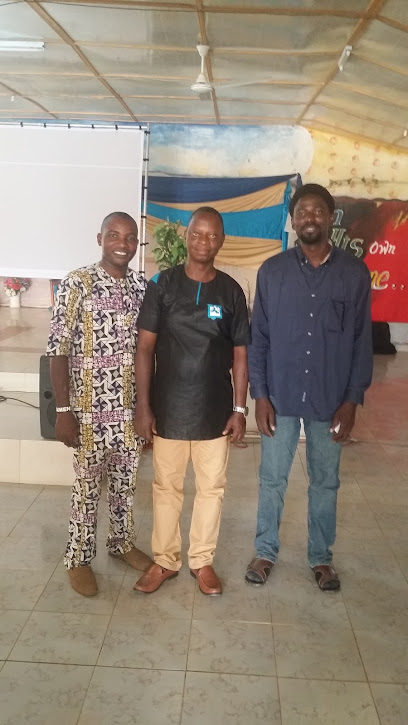
Farafenni market
Experience the heart of Gambian culture at Farafenni Market, a lively destination filled with local produce, crafts, and rich traditions.
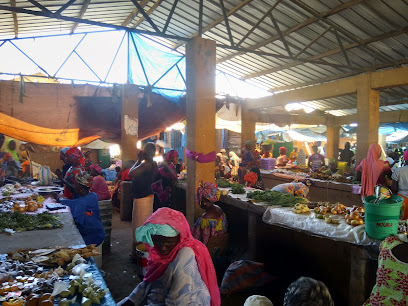
Jawara Kunda
Discover the vibrant Jawara Kunda Shopping Mall in Farafenni, Gambia, where local crafts and culture come alive in a unique shopping experience.
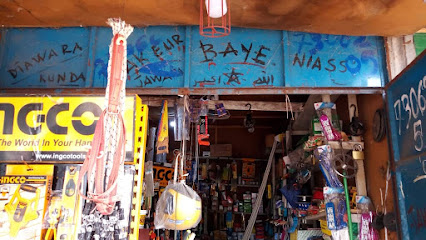
Supermarket Muslim
Explore the vibrant offerings of Supermarket Muslim in Farafenni, where local flavors meet everyday essentials for a unique shopping experience.
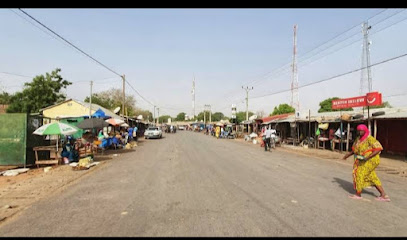
MAAM DAAM
Discover the vibrant shopping experience at MAAM DAAM in Farafenni, Gambia, where local culture meets international brands.
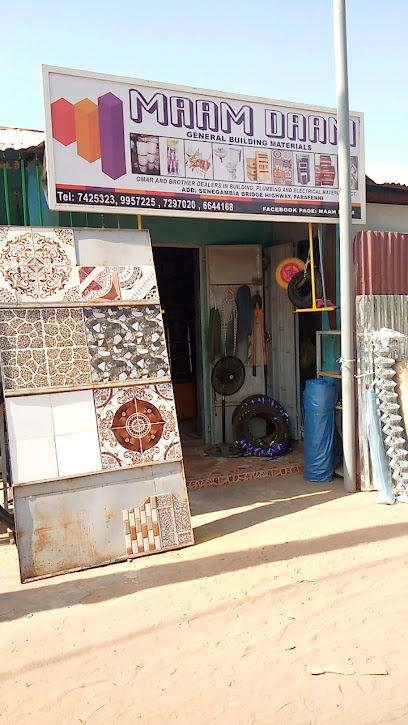
Ceesay kunda women fabric shop
Explore the vibrant world of Gambian textiles at Ceesay Kunda Women Fabric Shop in Farafenni, offering unique fabrics and a taste of local culture.
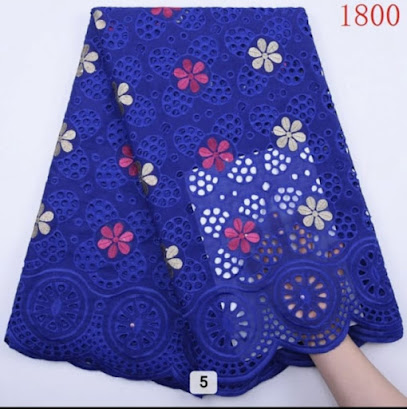
Farafeni Abatoir
Discover the heart of Farafenni at Farafeni Abatoir, where vibrant local culture and delicious cuisine come together in a bustling market experience.
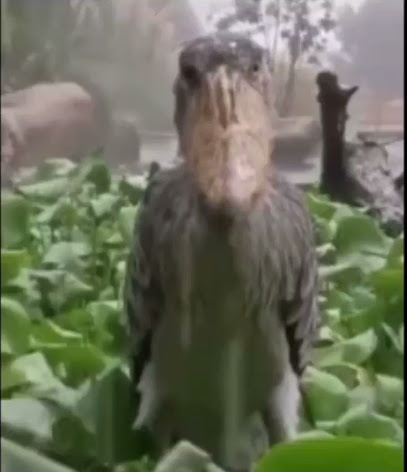
Smart choice shopping center
Experience the convenience of Smart Choice Shopping Center in Farafenni, your ultimate destination for local goods and travel essentials.

Sowe kunda's shop
Explore Sowe Kunda's Shop in Muntani, Farafenni for local treasures and a taste of authentic Gambian culture.

Baye Mobile Shop
Explore the best electronics at Baye Mobile Shop in Farafenni, featuring a wide range of mobile devices and accessories for all your travel needs.

Shape
Discover the vibrant shopping experience at Shape in Farafenni, where local culture meets modern retail therapy.

JALLOW MINI MARKERT
Explore the vibrant Jallow Mini Market in Farafenni, a local grocery store with a rich selection of Gambian and imported goods.
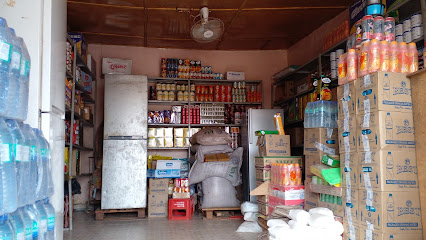
OMT Enter Price
Discover local culture, shopping, and dining at OMT Enter Price, the must-visit shopping mall in Farafenni, Gambia.
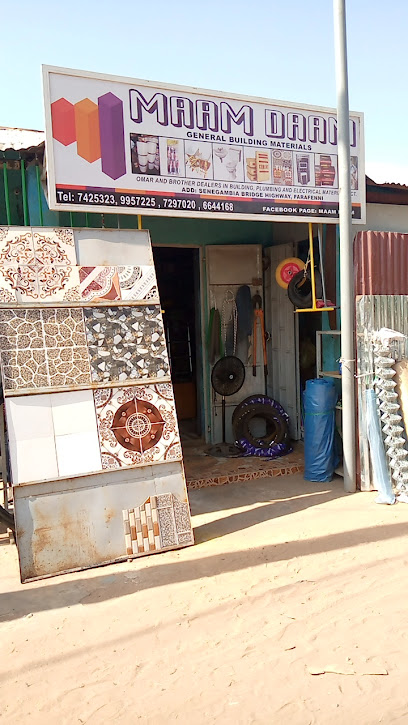
Mbaye nyang company
Discover quality tires and exceptional service at Mbaye Nyang Company, the leading tire shop in Farafenni, Gambia.

Essential bars & hidden hideouts
Solomon’s Beach Bar & Restaurant
Discover the vibrant beachfront dining experience at Solomon’s Beach Bar & Restaurant in Serrekunda, where local flavors meet stunning ocean views.
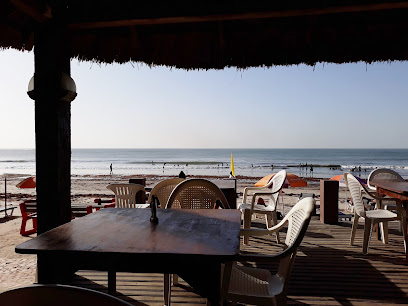
Calypso bar & restaurant
Experience the vibrant flavors and serene ambiance at Calypso Bar & Restaurant in Bakau, a true culinary treasure for tourists.
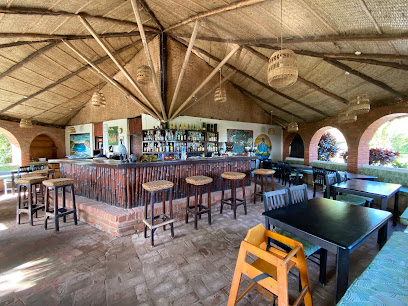
The Kotu Point Beach Bar
Discover the vibrant atmosphere of Kotu Point Beach Bar, where refreshing drinks and stunning ocean views await in Serrekunda.
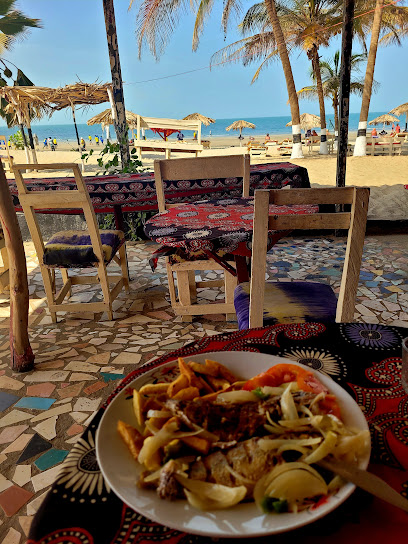
Friends Bar & Restaurant
Experience authentic Gambian flavors at Friends Bar & Restaurant in Bakau, where local ingredients meet warm hospitality.
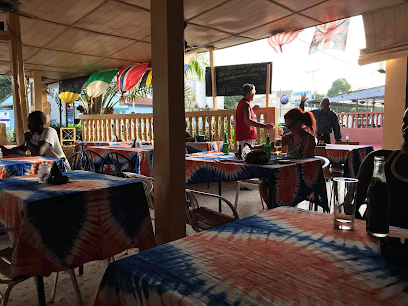
Eddy's Hotel
Experience authentic Gambian hospitality at Eddy's Hotel in Farafenni, where comfort meets culture in a vibrant atmosphere.
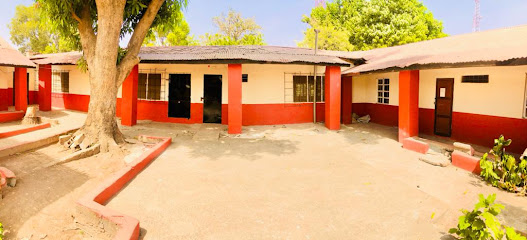
Rising Sun, Bar & Restaurant
Experience the vibrant flavors of Albadarr at Rising Sun, Bar & Restaurant, where local and international cuisines meet in a welcoming atmosphere.
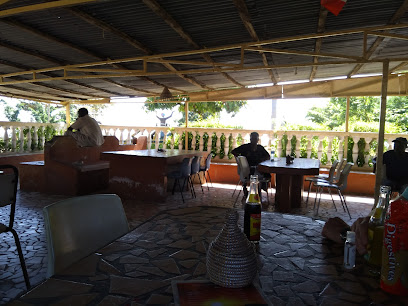
Whorf town
Discover Whorf Town in Farafenni - A lively bar where local culture meets refreshing drinks and vibrant nightlife.
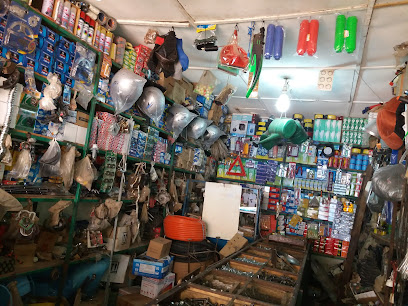
Babou's Food Paradise
Discover authentic Gambian cuisine at Babou's Food Paradise, a culinary treasure along the Trans-Gambia Highway in Farafenni.
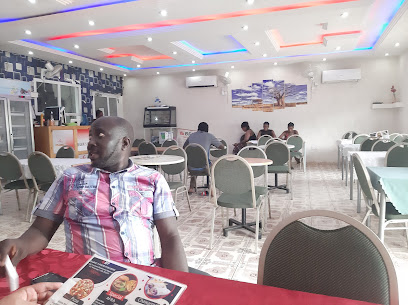
Fansue's Beach Bar & Restaurant
Experience the best of Gambian beach life at Fansue's Beach Bar & Restaurant, where culinary delights meet stunning ocean views.
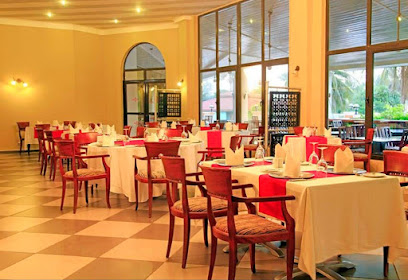
Supermarket Muslim
Discover local flavors and vibrant culture at Supermarket Muslim in Farafenni, a must-visit for food enthusiasts and cultural explorers.
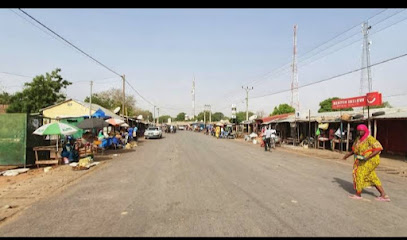
Bambo Bar
Experience the vibrant atmosphere and authentic Gambian cuisine at Bambo Bar in Tendaba, a must-visit restaurant for every traveler.
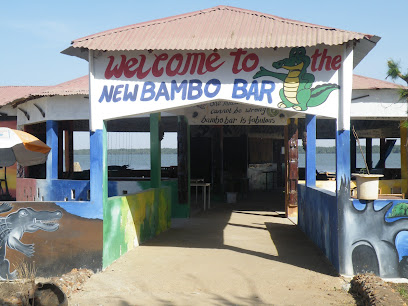
Poco Loco Beach Bar & Restaurant
Experience the vibrant flavors and breathtaking views of Poco Loco Beach Bar & Restaurant, a tropical escape in Bureng.
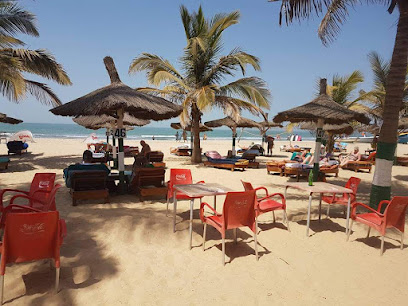
Oussama Jallow
Discover the vibrant jazz scene at Oussama Jallow, where live music and local talent create unforgettable experiences in Oussama.
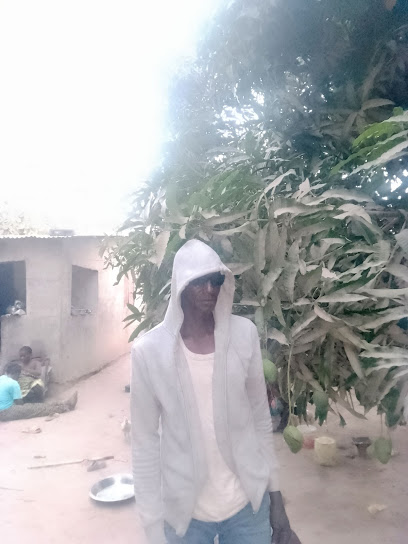
Melia
Discover the vibrant nightlife at Melia, Bureng's premier bar offering a taste of local culture and refreshing drinks in a lively atmosphere.

Local Phrases
-
- HelloSalam
[sa-laam] - GoodbyeJaaraama
[ja-raa-ma] - YesEey
[ee-y] - NoAlaa
[a-laa] - Please/You're welcomeNga def
[nga def] - Thank youJerejef
[je-re-jef] - Excuse me/SorryNjaafun
[nja-fun] - How are you?Nanga def?
[nan-ga def] - Fine. And you?Jarama. Nga def?
[ja-ra-ma. nga def] - Do you speak English?Noppa Angalee?
[nop-pa an-ga-lee] - I don't understandMa aadaa la
[ma a-da la]
- HelloSalam
-
- I'd like to see the menu, pleaseNoppa meni, def
[nop-pa me-ni, def] - I don't eat meatMa laa laa yah
[ma la la yah] - Cheers!Bissimilah
[bis-si-mi-lah] - I would like to pay, pleaseNoppa jib, def
[nop-pa jib, def]
- I'd like to see the menu, pleaseNoppa meni, def
-
- Help!Jog
[jog] - Go away!Woyyo
[woy-yo] - Call the Police!Noppa polis!
[nop-pa po-lis] - Call a doctor!Noppa doktor!
[nop-pa dok-tor] - I'm lostMa tudd
[ma tud] - I'm illMa yor
[ma yor]
- Help!Jog
-
- I'd like to buy...Noppa jott...
[nop-pa jot] - I'm just lookingMa laa laa yopp
[ma la la yop] - How much is it?Yow joxa wone?
[yow jo-cha wo-ne] - That's too expensiveWone yow waa
[wo-ne yow wa] - Can you lower the price?Noppa wone, wone?
[nop-pa wo-ne, wo-ne]
- I'd like to buy...Noppa jott...
-
- What time is it?Nanga xaman?
[nan-ga xa-man] - It's one o'clockXaman bi
[xa-man bi] - Half past (10)Xaman benn (10)
[xa-man ben (10)] - MorningJama
[ja-ma] - AfternoonJarange
[ja-ran-ge] - EveningJarama
[ja-ra-ma] - YesterdayNeegi
[nee-gi] - TodayXale yi
[xa-le yi] - TomorrowNgeen
[ngeen] - 1Benn
[ben] - 2Fen
[fen] - 3Sambaa
[sam-ba] - 4Nyaan
[nyaan] - 5Jikke
[jik-ke] - 6Jur
[jur] - 7Juroom
[ju-room] - 8Jowor
[jo-wor] - 9Sey
[sey] - 10Nawett
[na-wett]
- What time is it?Nanga xaman?
-
- Where's a/the...?Nanga nga...
[nan-ga nga] - What's the address?Nanga lataax?
[nan-ga la-taax] - Can you show me (on the map)?Noppa baaxna (mapp)
[nop-pa baa-na (map)] - When's the next (bus)?Nanga wone ndeki (car)
[nan-ga wo-ne n-de-ki (car)] - A ticket (to ....)Noppa bille (to ....)
[nop-pa bil-le (to ....)]
- Where's a/the...?Nanga nga...
History of Farafenni
-
Farafenni, located on the north bank of the River Gambia, has a history that stretches back centuries. It began as a small Mandinka village, strategically positioned along the trade routes connecting the inland regions with the coastal areas. The fertile lands and proximity to the river made it an attractive spot for early settlers, who engaged in agriculture and fishing.
-
During the colonial era, Farafenni became a significant point of interest for British colonial administrators. The British established a trading post in the town, facilitating the exchange of goods such as groundnuts, which were a major cash crop at the time. This period saw the construction of infrastructure, including roads and administrative buildings, which laid the groundwork for Farafenni's development.
-
Farafenni's strategic location made it a pivotal point for trans-Gambia trade. The town served as a crossing point for goods and people traveling between the north and south banks of the River Gambia. The establishment of the Farafenni Ferry, which connects the town to Soma on the south bank, further cemented its importance in regional trade and transportation.
-
Farafenni is a melting pot of cultures and ethnicities, including the Mandinka, Wolof, Fula, and Serer. This diversity is reflected in the town's vibrant cultural life, with traditional music, dance, and festivals playing a significant role in community life. The annual Farafenni Festival showcases the rich cultural heritage of the town, featuring performances, crafts, and culinary traditions.
-
In recent decades, Farafenni has experienced significant modernization and development. The construction of schools, hospitals, and marketplaces has improved the quality of life for its residents. The town has also become a hub for education and healthcare in the region, attracting people from surrounding areas. The completion of the Trans-Gambia Highway has further enhanced Farafenni's connectivity and economic prospects.
-
One of the most transformative developments in Farafenni's recent history is the construction of the Senegambia Bridge, which was inaugurated in 2019. This bridge spans the River Gambia, linking Farafenni with the southern part of the country and facilitating easier movement of goods and people. The bridge has significantly reduced travel time and bolstered economic activities in the region, positioning Farafenni as a key node in The Gambia's transport network.
Farafenni Essentials
-
Farafenni is located in the North Bank Region of The Gambia. The nearest international airport is Banjul International Airport, approximately 120 kilometers away. From Banjul, you can take a bus or hire a taxi to reach Farafenni. The journey typically takes around 3 to 4 hours by road, including a ferry crossing over the Gambia River at either Barra or Farafenni Bridge.
-
Farafenni is a relatively small town, and many of its attractions are within walking distance. Local taxis are available and affordable for longer trips. Public minibuses (locally known as 'gel-gels') operate within the town and connect to nearby villages. Renting a car is also an option, but be prepared for variable road conditions.
-
The official currency in The Gambia is the Gambian Dalasi (GMD). Credit cards are not widely accepted in Farafenni, so it is advisable to carry sufficient cash. ATMs are available but can be unreliable, so consider withdrawing enough cash in Banjul before traveling to Farafenni. Exchange rates may vary, so check rates beforehand.
-
Farafenni is generally considered safe for tourists, but standard precautions should be taken. Avoid walking alone at night and keep an eye on your belongings in crowded areas. While the crime rate is low, petty theft can occur, so stay vigilant. There are no specific high-crime areas targeting tourists, but it's always best to be cautious.
-
In case of an emergency, dial 117 for police assistance or 116 for an ambulance. The local police station and a health center are available in Farafenni. It is recommended to have travel insurance that covers medical emergencies. Pharmacies are available for minor health issues, but for serious conditions, you may need to travel to Banjul.
-
Fashion: Do dress modestly; avoid revealing clothing, especially in rural areas. Religion: Do respect local customs and traditions; always remove your shoes when entering a mosque. Public Transport: Do be respectful and give up your seat to elderly passengers. Don't eat or drink on public transport. Greetings: Do greet people with a handshake and a warm smile; it's common to ask about one's health and family. Eating & Drinking: Do try local dishes and accept food offerings graciously; don't refuse hospitality as it is considered impolite.
-
To experience Farafenni like a local, visit the bustling weekly market where you can buy fresh produce, traditional clothing, and handmade crafts. Engage with locals, who are often friendly and willing to share stories about the town's history and culture. Don't miss visiting the nearby Wassu Stone Circles, a UNESCO World Heritage Site. For a unique experience, participate in a local festival or event to immerse yourself in the rich cultural traditions of The Gambia.
Nearby Cities to Farafenni
-
Things To Do in Soma
-
Things To Do in Kaolack
-
Things To Do in Janjanbureh
-
Things To Do in Banjul
-
Things To Do in Lamin
-
Things To Do in Bakau
-
Things To Do in Brikama
-
Things To Do in Serrekunda
-
Things To Do in Serekunda
-
Things To Do in Gunjur
-
Things To Do in Canchungo
-
Things To Do in Mbour
-
Things To Do in Bissau
-
Things To Do in Thiès
-
Things To Do in Buba





